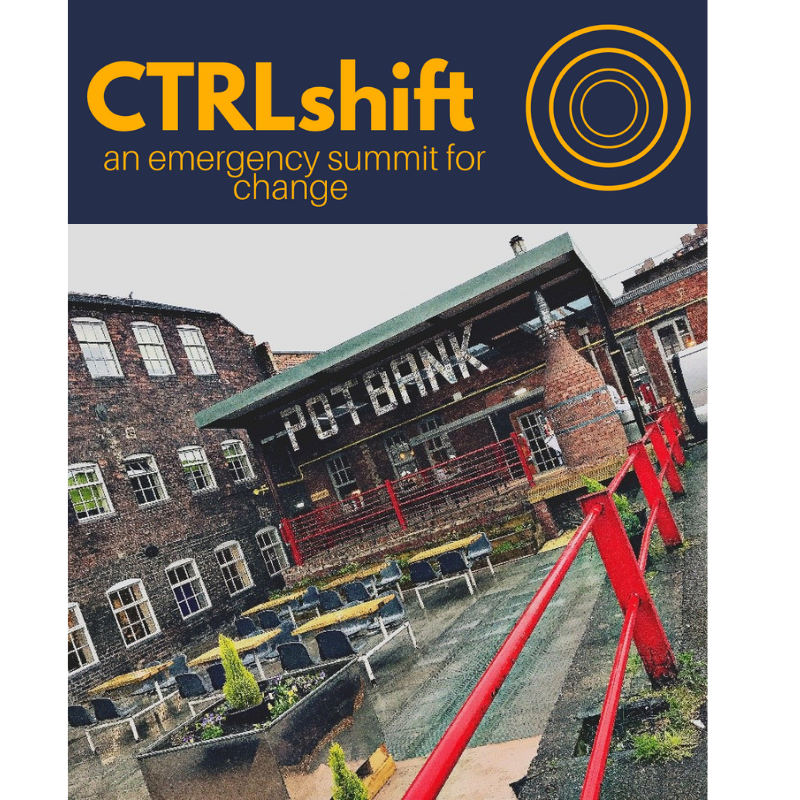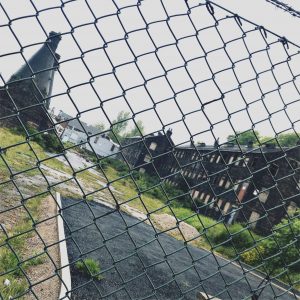
by Lee Robb
It was great to get the opportunity to go to Stoke recently, a part of England that I hadn’t visited before, to attend CTRL shift – An Emergency Summit For Change.
As the name ‘CTRL Shift’ suggests, the two-day summit was about shifting control – in this case away from central government towards local government, citizens and communities. A valiant intention that attracted more than 100 ‘changemakers’. This is hard but crucial work if we are to create more resilient local economies, social justice and a healthier co-existence with the planet. One of my favourite activities was a community night walk held on the first evening of the three day summit. Led by local people, we explored Stoke’s industrial heritage and connected with existing community projects through ‘human noticeboards’ who shared information with us at important points throughout our walk. I was really struck by the tension that exists between regeneration, protecting and making the most of our industrial heritage, and not romanticising the hard and short lives that many people had when working in industrial heartlands, such as Stoke. There is a fine balance to be struck when we think about regeneration – yet another reason why it should involve local people with strong connections to the places they live in.

The summit kicked off proper on Thursday morning with a range of ‘solutions sessions’ and I also went to hear Jay Tompt talk about the REconomy project in Totnes and how it might be replicated in other places. On Friday morning I took part in a session with Andy Goldring on systems thinking and Permaculture, which has inspired me to explore creating my own permaculture garden.
What I always enjoy, when going to events like this, is connecting with people over lunch and dinner and this event was no different. I got to know Vicky who chairs a women’s network in Stoke, Zoe from the Ecological Land Coop, Kenny from the RSA and Sophie from Open Edge.
While it was great to connect with people involved in meaningful and important work, I was also struck by how behaviours, that are, in my view, keeping us trapped in our current system, were on display in the summit’s structure and activities.
I sensed a lack of trust that people were able to connect and make meaning without the intervention of the organisers. Ironically, a packed agenda meant that there was not enough time for human beings to connect deeply and build relationships, or to reflect. This desire to control the agenda and subsequent activities resulted in a lot of value being placed on ‘busyness’ and I left the summit feeling like the main message was: ‘you aren’t doing enough; you need to do more.’
As I walked from the Potbank to my hotel on the Thursday evening, with the Permaculture adage ‘the problem is the solution’ ringing in my ears, I wondered if the answer is the opposite of do more. MORE seems to me to be one of our biggest problems – BUY MORE, WANT MORE, CONSUME MORE, BE MORE. As we struggle to come to terms with the finite nature of the resources we have been consuming, and the negative impact on human beings of living as we do, I would like to engage with people keen to create a better existence for all of us and discuss what ENOUGH looks like.